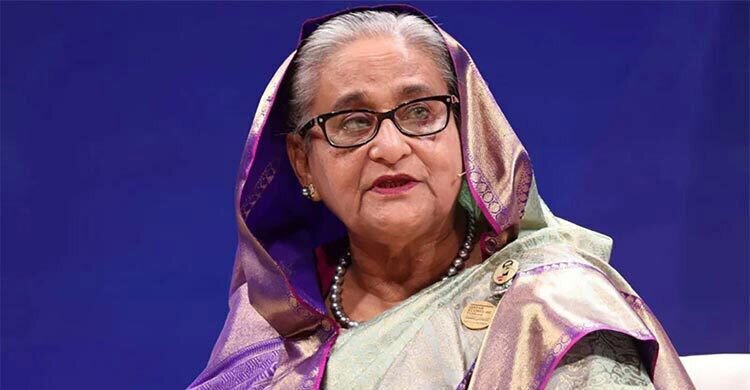Dhaka (TDI): The exiled former Prime Minister of Bangladesh, Haseena Wajid, has been sentenced to six months in jail for disobedience of court by the International Crimes Tribunal (ICT), a sharp escalation of legal action against the veteran leader.
The ruling, delivered in the absence of Haseena on Wednesday, follows a forensic report confirming Hasina’s voice in an audio recording that was said to have mocked the court process.
The three-member tribunal, led by Justice Golam Mortuza Mozumder, ruled that the remarks of Hasina in the leaked audio, “There are 227 cases against me, so I now have a licence to kill 227 people”, lowered the credibility and authority of the judiciary.
Chief Prosecutor Muhammad Tajul Islam informed the court that the sentence will be executed after her arrest or voluntary surrender.
Hasina, who had gone into exile in India after a student revolt drove her government from office in August, is accused of a string of offenses including corruption, human rights abuses, and crimes against humanity.
Read More: Pakistan, Bangladesh Seal Over 20 Academic MoUs
This is the first time Haseena has been formally convicted by the government. In the same case, Shakil Akand Bulbul, a senior member of Chhatra League who was recently banned by the authorities,
Formed in 2010 under Hasina’s government to try 1971 war crimes, the ICT has now been re-shaped by the new interim government, led by Nobel Laureate Muhammad Yunus, to investigate atrocities against Hasina’s regime.
Critics have been concerned about the politicization of the judiciary. “These cases are part of a larger effort to wipe out democratic opposition,” said a lawyer in Hasha’s legal team, who wished not to be named.
The government, however, maintains that the trials are needed to “restore the rule of law and rebuild institutional integrity.”.
The court has also issued multiple arrest warrants against Hasina in connection with the crackdown on protests last year. Her Awami League party is still banned, with a number of its ex-officials facing trial.
With growing legal and political tensions, the international community is watching closely because of concerns about the democratic path of Bangladesh and the independence of its justice system.
A passionate International Relations student with a strong interest in diplomacy, policy, and global affairs. Dedicated to contributing thoughtful analysis and research on international issues.




